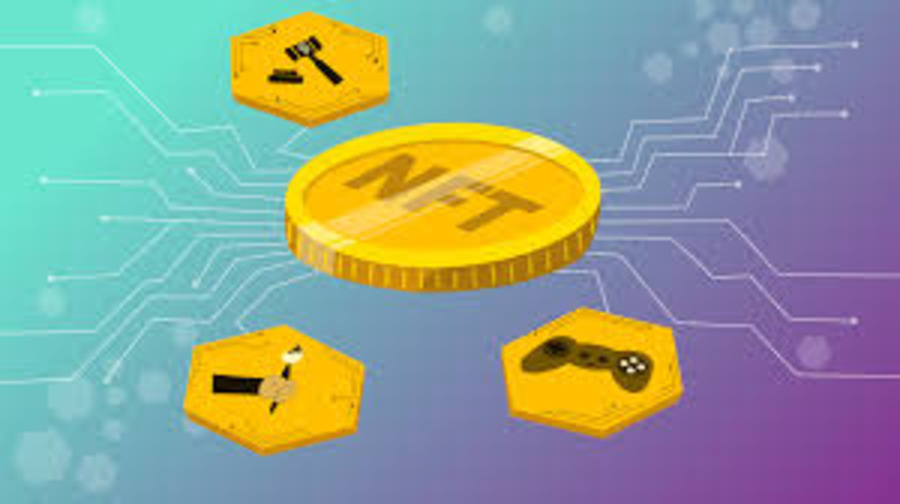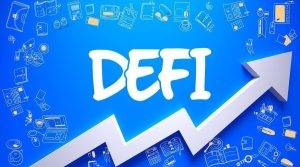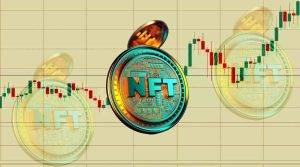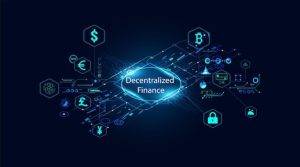Decentralized Exchanges and Non-Fungible Tokens (NFTs)

The world of blockchain technology and cryptocurrency is rapidly evolving, with new concepts and applications emerging on a regular basis. One of the most significant developments in recent years has been the rise of decentralized exchanges (DEXs) and non-fungible tokens (NFTs). In this article, we will explore the relationship between these two concepts and discuss their implications for the future of blockchain technology and the wider economy.
What is a Decentralized Exchange (DEX)?
A decentralized exchange is a platform that allows users to trade cryptocurrencies directly with each other, without the need for intermediaries such as banks or brokers. These exchanges are often built on blockchain technology, and they use smart contracts to execute trades automatically. Unlike centralized exchanges, which require users to deposit funds with a central authority, decentralized exchanges allow users to retain control of their assets at all times.
One of the key advantages of decentralized exchanges is their resistance to censorship and control by third parties. Because the exchange is distributed across a network of computers, there is no single point of failure or vulnerability that can be exploited by hackers or regulators. This makes decentralized exchanges a popular choice among users who value privacy, security, and autonomy.
What are Non-Fungible Tokens (NFTs)?
Non-fungible tokens (NFTs) are a type of digital asset that represent ownership of a unique item or piece of content. Unlike cryptocurrencies such as Bitcoin or Ethereum, which are fungible and interchangeable, NFTs are non-fungible and cannot be replicated or replaced.
NFTs are often used to represent artwork, music, or other forms of creative content. They are created using blockchain technology, which allows for secure ownership verification and transfer. When an NFT is purchased, the ownership rights to the underlying content are transferred to the buyer, who can then sell or trade the NFT on a decentralized exchange.
The Rise of NFTs on Decentralized Exchanges
The rise of NFTs has led to a surge in demand for decentralized exchanges, as users look for ways to buy and sell these unique digital assets. Decentralized exchanges offer several advantages over traditional centralized exchanges when it comes to trading NFTs.
First and foremost, decentralized exchanges allow users to retain control of their assets at all times. Because NFTs are non-fungible, they are often worth a significant amount of money, and users want to be sure that their assets are secure. Decentralized exchanges offer a level of security and privacy that is unmatched by centralized exchanges, which often require users to deposit their assets with a third party.
Another advantage of decentralized exchanges is their flexibility. Unlike centralized exchanges, which often have strict listing requirements and fees, decentralized exchanges allow anyone to list their NFTs for sale. This means that creators and artists can sell their work directly to fans and collectors, without having to go through a middleman.
The Future of Decentralized Exchanges and NFTs
As the demand for NFTs continues to grow, we can expect to see further innovation and development in the field of decentralized exchanges. One of the most exciting developments is the rise of layer-two scaling solutions, such as Polygon and Arbitrum, which offer faster and cheaper transactions on decentralized exchanges.
Another area of innovation is the use of decentralized finance (DeFi) protocols to enable more advanced trading strategies on decentralized exchanges. For example, some DeFi protocols allow users to provide liquidity to pools of NFTs, earning a return on their investment while also supporting the underlying ecosystem.
Conclusion
Decentralized exchanges and non-fungible tokens are two of the most exciting developments in the world of blockchain technology. By combining the security and privacy of decentralized exchanges with the unique ownership rights of NFTs, users are able to buy, sell, and trade digital assets in a way that was previously impossible. The rise of NFTs on decentralized exchanges has created new opportunities for creators, collectors, and investors alike and has helped to push the boundaries of what is possible with blockchain technology.
As the technology continues to evolve and mature, we can expect to see even more exciting developments in the field of decentralized exchanges and NFTs. Whether it’s through the use of layer-two scaling solutions, DeFi protocols, or other innovative solutions, there is no doubt that the future of decentralized exchanges and NFTs is bright. With increased security, privacy, and flexibility, decentralized exchanges and NFTs are poised to transform the way we buy, sell, and trade digital assets, and to usher in a new era of decentralized finance and innovation.

I’ve been regularly sought out by media outlets for my insights on the latest industry developments, and my work has been featured in major publications such as CoinDesk, Bitcoin Magazine, and Business Insider. I am also a founding member of Crypto NYC, one of the largest cryptocurrency meetups in the world, where I educate others about this fascinating new technology.



